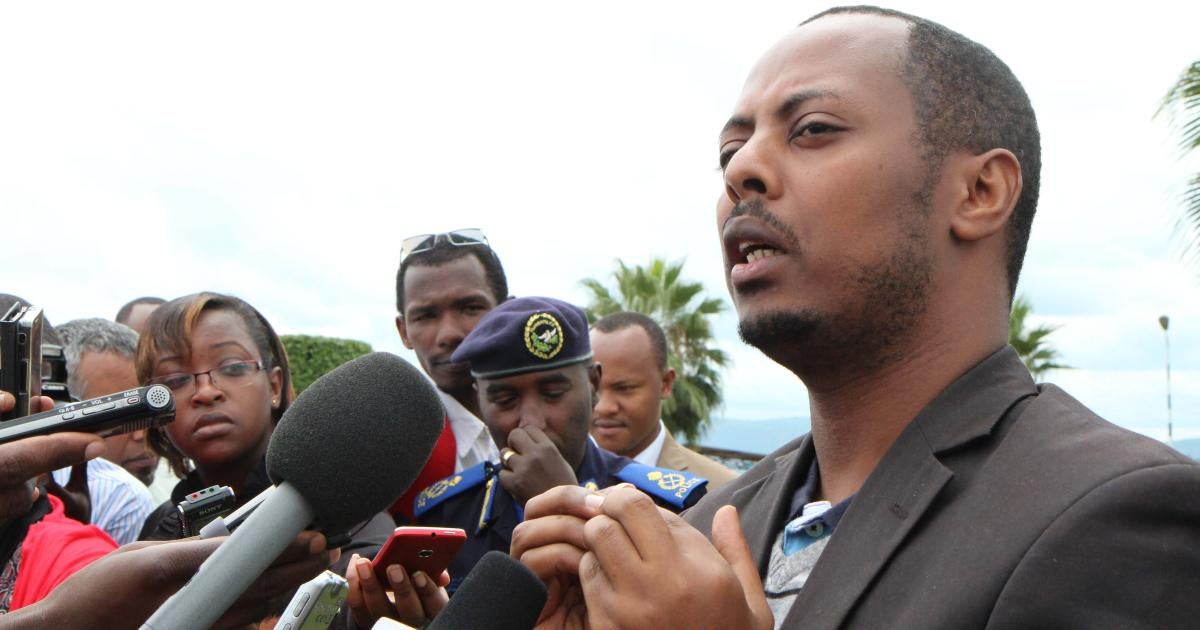The Cost of Speaking Up in Rwanda

The UK’s decision to deport asylum seekers to Rwanda and the much-awaited Commonwealth Heads of Government Meeting, which took place in the capital Kigali in June, have triggered much-needed scrutiny of Rwanda.
The legal challenge against deportations, set to be heard in the UK courts this month, presents another opportunity to shine a spotlight on Rwanda’s human rights record. But doing so will undoubtedly present significant challenges. Time and time again we have witnessed people’s lives be destroyed for speaking out about injustice in Rwanda. It can start with surveillance, threatening messages, family members pressured, employers bullied, and jobs lost, but can rapidly escalate to passports being confiscated, prosecution, torture, disappearance, or even death. A Human Rights Watch report in July 2017 exposed how security forces apprehended and summarily executed suspected petty offenders.
The Government’s response to the findings was to threaten and coerce the victims’ families, and to force them to present false accounts of what had happened to their loved ones. Local officials or security forces detained family members who refused. In recent years, at least one person has been jailed for sharing information with Human Rights Watch.
The charge? “Spreading false information or harmful propaganda with intent to cause a hostile international opinion against Rwandan Government.” It doesn’t take much to land someone in jail when criminal offenses are so broad and abusive. Between 2019 and 2022, Human Rights Watch documented over 30 cases of opposition members, journalists, critics, and activists who have died, disappeared, or ended up in jail.
These cases send a stark message to all those who think about questioning the status quo. In 2013, Transparency International Rwanda employee Gustave Makonene’s body was found twisted around a large tree with a rope around his neck. Makonene had been handling corruption allegations, some of which reportedly involved members of the police. In February 2020, singer and activist Kizito Mihigo was reportedly “found dead” in his police cell. Mihigo fell from grace after releasing a song in 2014 which he expressed compassion for victims of the ruling Rwandan Patriotic Front’s crimes. At the time, he was detained incommunicado, beaten, and jailed on baseless charges for four years. After his release, the authorities seized his passport to prevent him leaving the country. He was arrested trying to cross “illegally” into Burundi in February 2020 and announced dead four days later. Ensuring sources’ security is challenging when working in Rwanda. Even the United Nation’s Subcommittee on the Prevention of Torture had to cancel its visit to Rwanda in 2018 – the only country in which it has ever had to – due to interference from the government and security concerns. Rwandans know, all too well, the consequences they risk if caught denouncing human rights violations, and anyone looking into Rwanda’s human rights record should remember the price many have paid for doing so. If the asylum seekers are deported to Rwanda, they will need to play by rules of their new host country. No one – not the UK Home Office nor Human Rights Watch – can claim to know the true depth and severity of the abuse in Rwanda. Failing to recognize this will put lives at risk.
Read the full article at the original website
References:
- https://www.hrw.org/news/2022/06/11/public-letter-uk-home-secretary-expulsions-rwanda
- https://www.hrw.org/news/2022/06/10/call-commonwealth-leaders-speak-rights-rwandans
- https://www.hrw.org/africa/rwanda
- https://www.hrw.org/news/2022/03/16/rwanda-wave-free-speech-prosecutions
- https://www.hrw.org/news/2022/06/13/rwanda-jailed-critic-denounces-torture-prison
- https://www.hrw.org/news/2019/08/15/rwanda-disappearances-require-credible-investigations
- https://www.hrw.org/news/2020/08/17/rwanda-6-months-no-justice-kizito-mihigo
- https://www.hrw.org/news/2017/07/13/rwanda-petty-crime-suspects-summarily-executed
- https://www.hrw.org/news/2017/11/01/rwanda-cover-negates-killings
- https://www.hrw.org/news/2014/07/19/why-whole-world-still-silent-murder-rwandan-activist-makonene
- https://www.hrw.org/news/2021/02/17/interview-how-song-sealed-fate-rwandan-gospel-singer
- https://www.hrw.org/world-report/2016/country-chapters/rwanda
- https://www.theeastafrican.co.ke/tea/news/east-africa/un-anti-torture-team-cancels-rwanda-visit-again-1398378
- https://www.hrw.org/news/2022/05/12/uks-rights-assessment-rwanda-not-based-facts
